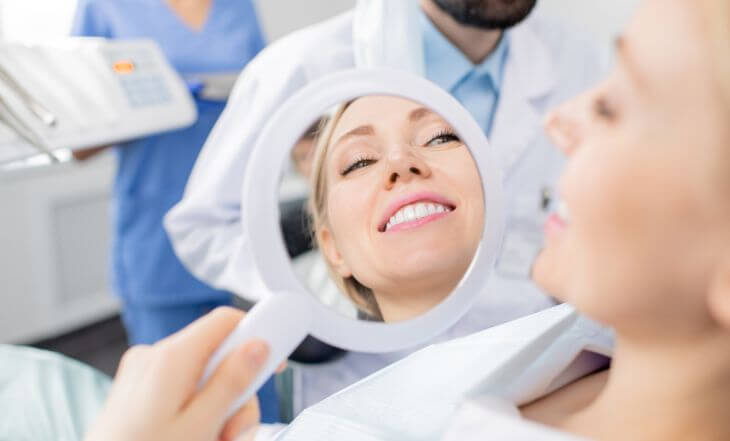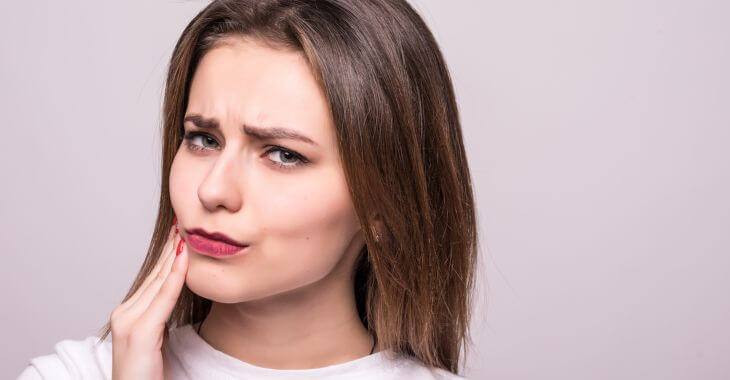Should You Brush Your Teeth After Whitening Strips?

Whitening strips have become a popular and accessible way to enhance the brightness of your smile. However, questions often arise regarding the proper care of your teeth after using whitening strips, including, “Should you brush your teeth after whitening strips?”
The answer to this question isn’t as straightforward as it may seem, as it depends on various factors, including the specific product, your dental health, and personal preferences. Let’s explore the considerations about pre and post-whitening care.
Understanding Whitening Strips
Before delving into post-whitening care, it is essential to understand how whitening strips work. Most whitening strips contain a peroxide-based gel that, when applied to the teeth, breaks down stains and discoloration on the tooth’s surface to lighten the shade of the teeth, resulting in a whiter appearance.
These over-the-counter products are convenient and offer effective results, making them a go-to choice for many people seeking a whiter, more radiant set of teeth. While whitening strips can be effective, they may cause temporary tooth sensitivity, especially in cases of overuse or misuse.
Why the Timing Matters
The timing of tooth brushing after using whitening strips is a crucial consideration. Immediately after a whitening treatment, the teeth may be more susceptible to staining because the whitening process temporarily opens up the tooth’s pores.
If you brush your teeth too soon after whitening, you could potentially push the staining agents from your toothpaste into these open pores, counteracting the whitening process. However, there are circumstances where immediate brushing may be recommended or necessary.
Type of Whitening Product
The specific whitening product you use may influence the recommended post-treatment care. Some whitening strips come with a post-treatment rinse or desensitizing gel that you should use immediately after removing the strips. It’s important to follow the manufacturer’s instructions for the best results.
What to Do After Whitening Strips
Always start by carefully reading and following the instructions provided with your chosen whitening strips. Manufacturers often provide specific recommendations for post-treatment care and will recommend what to do after whitening strips are applied. Other things to consider:
- Sensitivity: If you experience increased tooth sensitivity after using whitening strips, it may be advisable to wait a bit before brushing. Toothpaste can sometimes exacerbate sensitivity, so giving your teeth some time to recover may be beneficial.
- The Timing of Your Next Meal or Drink: After using whitening strips, it’s a good idea to avoid consuming foods and beverages that are known to stain teeth, such as coffee, red wine, and certain dark-colored foods, for at least an hour. This gives your teeth time to recover and helps prevent new stains from forming immediately after whitening.
- Wait for at Least 30 Minutes to an Hour: To minimize the risk of staining immediately after using whitening strips, it’s generally a good idea to wait at least 30 minutes to an hour before brushing your teeth. This allows the pores on your teeth to begin closing up and the whitening process to stabilize.
- Use a Gentle Toothbrush and Toothpaste: When you do decide to brush your teeth after whitening, opt for a soft-bristle toothbrush and a toothpaste that’s designed for sensitive teeth. These are generally less abrasive and can help minimize the risk of further sensitivity or damage to your enamel.
- Maintain a Regular Oral Hygiene Routine: Whitening strips are not a replacement for your daily oral hygiene routine. It’s essential to continue brushing your teeth at least twice a day and flossing to maintain good oral health. However, you can use a gentle touch and avoid vigorous brushing.
- Watch Your Diet: Be mindful of your dietary choices immediately after using whitening strips. As mentioned earlier, avoiding staining foods and drinks for at least an hour can help protect your newly whitened smile.
If you’re unsure about the best post-whitening care routine for your specific situation or if you experience persistent tooth sensitivity, consult with your dentist. They can provide personalized recommendations and address any concerns you may have.
Should You Brush Your Teeth Before Whitening Strips?
Brushing your teeth before using whitening strips is a common practice and is generally recommended for optimal results. Cleaning your teeth before applying whitening strips helps ensure that the whitening gel makes direct contact with your tooth enamel, allowing for better and more even coverage.
Brushing before applying teeth whitening strips or other whitening products helps remove any surface stains, debris, or plaque, which can interfere with the whitening process. You should wait a short while after brushing, allowing saliva to form a protective layer before applying the whitening strips.
Brushing before whitening helps balance the benefits of a clean surface with the protective effects of your saliva to minimize sensitivity and enhance the whitening effects of the strips. It also eliminates the need to brush your teeth immediately after the whitening treatment.
Consider Professional Whitening
If sensitivity persists or you are not satisfied with the results of over-the-counter whitening products, consider professional teeth whitening performed by a dentist. Dentists can tailor the treatment to your specific needs and monitor your oral health throughout the process.

In most cases, it is best to brush before, not after, teeth whitening treatments. Maintaining a regular oral hygiene routine and consulting with your dentist for personalized guidance can help you achieve and maintain a beautiful, white smile while preserving your oral health.
The information provided on this website, including text, graphics, images, and other materials, is intended solely for informational purposes and should not be used as a substitute for professional medical advice, diagnosis, or treatment.



)